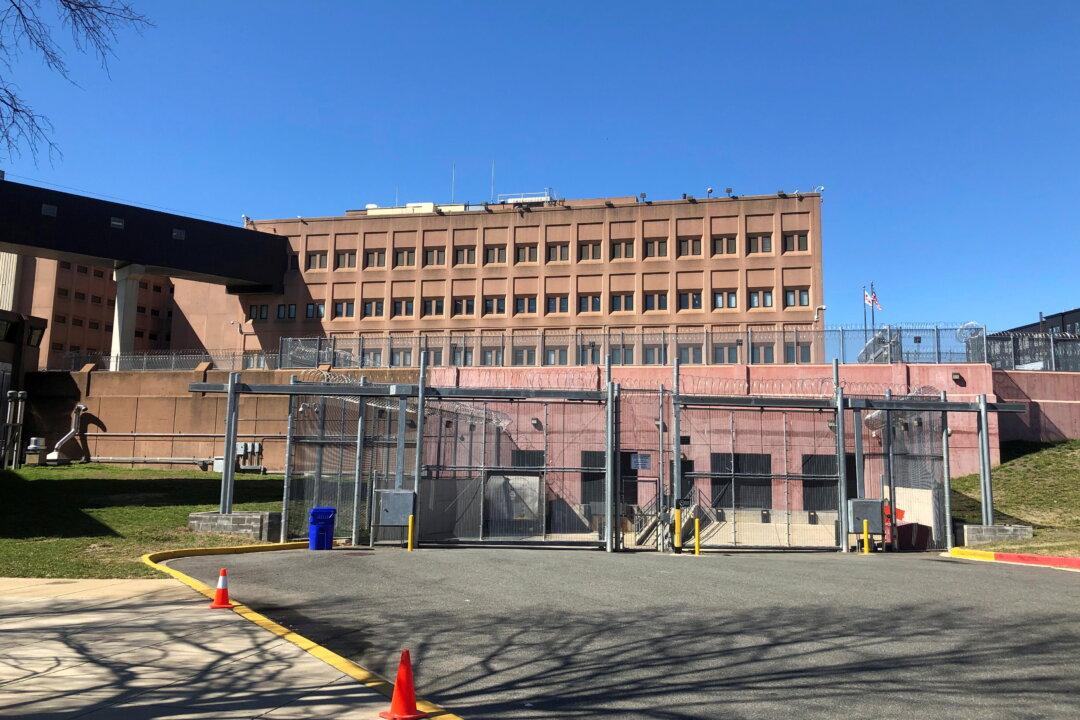Multiple Jan. 6 defendants were taken out of their cells on stretchers at the District of Columbia jail on Nov. 11, according to a court filing.
The situation started when one of the defendants refused to wear a mask, family members of Kelly Meggs, who is being held in the D.C. jail, told Meggs’s lawyer. Prison guards then began spraying a chemical substance described as “some kind of mace or pepper spray,” according to a filing in federal court.





